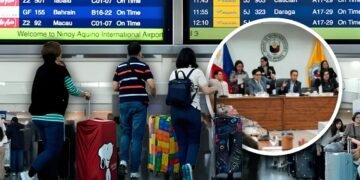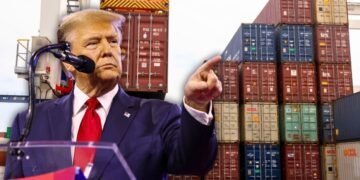Colombian President Gustavo Petro has rejected two U.S. military flights carrying deported Colombian nationals, each with approximately 80 individuals on board.
Petro cited concerns over the treatment of deportees, stating that they should not be treated as criminals. He proposed the use of the presidential plane to repatriate citizens, advocating for civilian aircraft instead of military planes for such operations.
The rejection of these flights comes as the U.S. Immigration and Customs Enforcement (ICE) ramps up deportation efforts.
ICE is targeting between 1,200 to 1,500 arrests daily for immigration violations, with one recent day recording 956 arrests nationwide.
Colombians account for a growing share of migrants attempting to cross into the U.S., with encounters at the border surging from 6,200 in fiscal year 2021 to over 125,200 in fiscal year 2022.
The U.S. government responded strongly to Colombia’s decision. President Donald Trump imposed a 25% tariff on all Colombian imports and warned of increasing it to 50% if the matter remains unresolved.
Additional measures include travel bans, visa restrictions targeting Colombian officials, and heightened inspections for Colombian goods and travelers entering the U.S.
In retaliation, President Petro instructed his trade minister to impose reciprocal 25% tariffs on U.S. imports.
Petro framed this decision as an opportunity to bolster domestic production, stating, “American products whose price will rise within the national economy must be replaced by national production, and the government will assist in this effort.”
The economic implications of this standoff could be significant. Colombia is the third-largest U.S. trading partner in Latin America.
In 2023, Colombian exports to the U.S. totaled approximately $14.11 billion. Major exports include mineral fuels and oils ($6.23 billion), live trees and cut flowers ($1.68 billion), pearls and precious stones ($1.45 billion), and coffee, tea, and spices ($1.20 billion).
With Colombia’s economy heavily reliant on the U.S. market, disruptions to trade flows could have substantial consequences.
This dispute comes amid broader tensions between the U.S. and Latin America regarding deportation practices. Brazil has similarly criticized the treatment of its nationals during deportation flights, particularly the use of handcuffs and other restraints.












